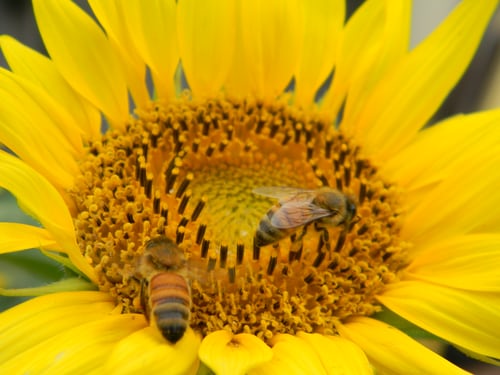Nutrient Neutrality affects 42 Local Authorities across 27 catchment areas in England……

by Jo Hanslip
Secretary of State for the Environment, George Eustice MP, in a Ministerial Statement on 16 March 2022, announced new provisions under the Environment Act, including:
- Legally binding targets to protect and restore nature – covering matters of water, air quality and diversity of wildlife
- Measure to include wetland sites from nutrient related damage and pollution
- Increasing Natural England requirements to achieve nutrient neutrality from seven catchment areas in 31 Local Authorities, to 27 catchment areas across 42 Local Authorities.
The Minister announced that a Nutrient Calculator has been published by Natural England to enable sustainable development, and that £100,000 has been offered by the Government to each affected catchment area for cross boundary LPA working to enable developments to continue. Incinerator/landfill targets are to be reduced by 50% by 2042, increasing tree cover by 3% by 2050 and marine protection measures for 2042.
Natural England full advice note can be read here:
What is Nutrient Neutrality?
Natural England explains this in its advice note as:
“a means of ensuring that a plan or project does not add to existing nutrient burdens so there is no net increase in nutrients as a result of the plan or project (i.e. it “consumes its own smoke”). Where nutrient neutrality is properly applied and the existing land use does not undermine the conservation objectives, Natural England considers that an adverse effect on integrity alone and in combination can be ruled out.
Where neutrality measures are needed, the purpose of these mitigation measures is to avoid impacts to the designated sites, rather than compensating for the impacts once they have occurred.”
What Applications are Affected?
All new applications for new homes including where outline permission awaited reserved matters approval as well as condition discharge. These will all be affected by the new requirement to achieve nutrient neutrality and reserved matters. Other land uses are also affected which might impact upon the wastewater system as well as applications for grants of prior approval and/or certificates of lawfulness for a proposed use or operation.
What Areas are Affected?
The affected catchment and Authorities are shown on the plan and table below:
Catchment and LPA Table
| Habitats Site & Catchment | LPA Affected | Nutrient |
| Chesil and the Fleet SAC/SPA | Dorset Council | Nitrogen and Phosphorus |
| Esthwaite Water Ramsar | South Lakeland Council | Phosphorus |
| Hornsea Mere SPA | East Riding of Yorkshire Council | Nitrogen and Phosphorus |
| Lindisfarne SPA/Ramsar | Northumberland County Council | Nitrogen |
| Oak Mere SAC | Cheshire West and Chester Council | Phosphorus |
| Peak District Dales SAC | Derbyshire Dales District Council High Peak Borough Council Peak District National Park Authority | Phosphorus |
| River Axe SAC | Dorset Council East Devon District Council Somerset West & Taunton Council South Somerset District Council | Phosphorus |
| River Clun SAC | Herefordshire Council Shropshire Council | Nitrogen and Phosphorus |
| River Derwent & Bassenthwaite Lake SAC (only applies to catchments of Bassenthwaite Lake (River Derwent and Tributaries SSSI unit 1) and River Marron (unit 124 of River Derwent and Tributaries SSSI). | Allerdale Borough Council Copeland Borough Council Eden District Council Lake District National Park | Phosphorus |
| River Eden SAC | Allerdale Borough Council Carlisle City Council Durham County Council Eden District Council Lake District National Park Northumberland County Council Northumberland National Park Richmondshire District Council South Lakeland Council | Phosphorus |
| River Itchen SAC (part of Solent Catchment) | Basingstoke and Deane Borough Council East Hampshire District Council Eastleigh Borough Council Winchester City Council | Nitrogen and Phosphorus |
| River Kent SAC (only applies to catchments of units 104 and 111 of River Kent SSSI) | Eden District Council Lake District National Park South Lakeland Council | Phosphorus |
| River Lambourn SAC | Swindon Borough Council Vale of White Horse District Council West Berkshire Council Wiltshire Council | Phosphorus |
| River Mease SAC | East Staffordshire Borough Council Hinckley and Bosworth Borough Council Lichfield District Council North Warwickshire Borough Council North West Leicestershire District Council South Derbyshire District Council | Phosphorus |
| River Wensum SAC | Borough Council of King’s Lynn and West Norfolk Breckland Council Broadland & South Norfolk Council North Norfolk District Council Norwich City Council | Phosphorus |
| Roman Walls Loughs SAC | Northumberland County Council Northumberland National Park Authority | Phosphorus |
| Rostherne Mere Ramsar | Cheshire East Council | Nitrogen and Phosphorus |
| Teesmouth & Cleveland Coast SPA/Ramsar | Darlington Borough Council Durham County Council Eden District Council Hambleton District Council Hartlepool Borough Council Middlesbrough Council North York Moors National Park Redcar and Cleveland Borough Council Richmondshire District Council Stockton-on-Tees Borough Council | Nitrogen |
| The Broads SAC/Ramsar (only the following are included: SSSI SSSI Marshes SSSI | Borough Council of King’s Lynn and West Norfolk Breckland Council Broadland & South Norfolk Council Great Yarmouth Borough Council North Norfolk District Council Norwich City Council The Broads Authority | Nitrogen and Phosphorus |
| West Midlands Mosses SAC (only catchments of Abbotts Moss SSSI and Wynbunbury Moss SSSI are included) | Cheshire East Council (Wynbunbury) Cheshire West and Chester Council (Abbotts) | Nitrogen and Phosphorus |

Figure 1 – Natural England Catchment Plan Source: Natural England Letter 16 March 2022
Next Steps
The guidance takes immediate effect. The legally binding targets announced by the Minister to protect and restore nature are subject to an 8-week consultation and are set out in the Nature Recovery Green Paper also published as detailed below.
https://consult.defra.gov.uk/nature-recovery-green-paper/nature-recovery-green-paper/
This Green Paper includes options to bring clarity and coherence to the framework for protected sites; to reform species protections; and to modernise funding arrangements. It also looks at what institutional and delivery arrangements would best support our nature recovery objectives.






